Technicians from the Central American Dry Corridor trained in climate-resilient agroforestry systems
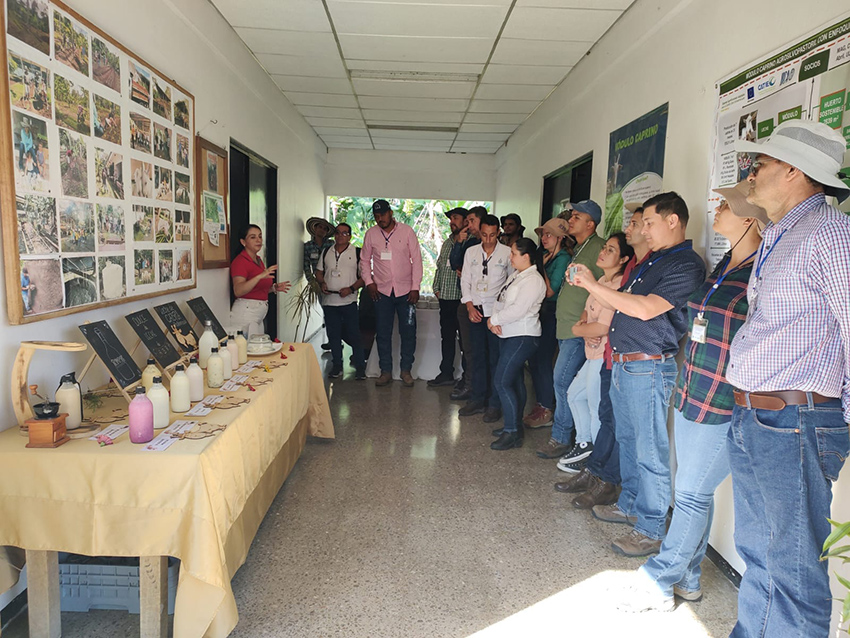
- 24 professionals update their skills in the design and management of multi-strata agroforestry systems in a course organized by CATIE under the AGRO-INNOVA project.
February 9, 2024. From January 29th to February 1st, CATIE (Tropical Agricultural Research and Higher Education Center) hosted 24 institutional technicians from the Central American Dry Corridor (CSC) on its campus for a professional development course focused on agroforestry systems adapted for climate resilience and food security.
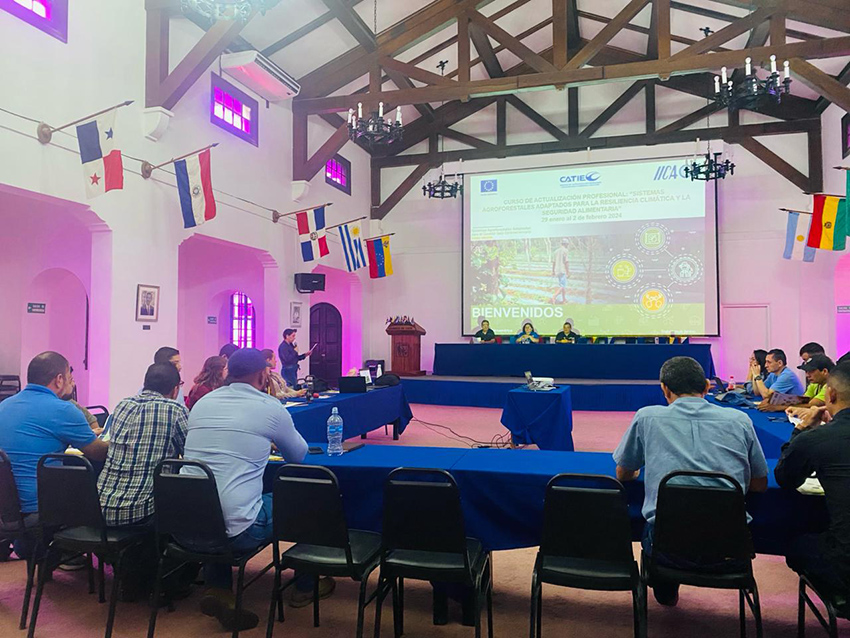
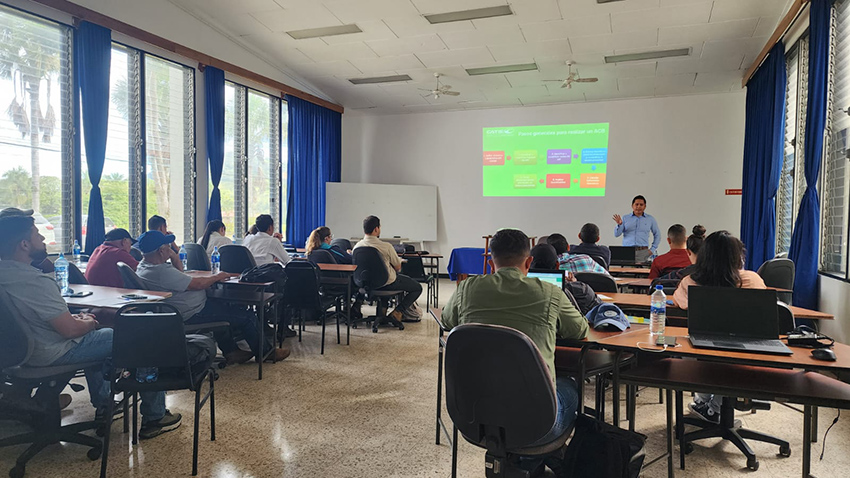
The main objective of this course was to strengthen conceptual models in the design, implementation, and management of multi-strata agroforestry systems, with institutional technicians involved in extension and transfer actions with producer families and organizations in the CSC.
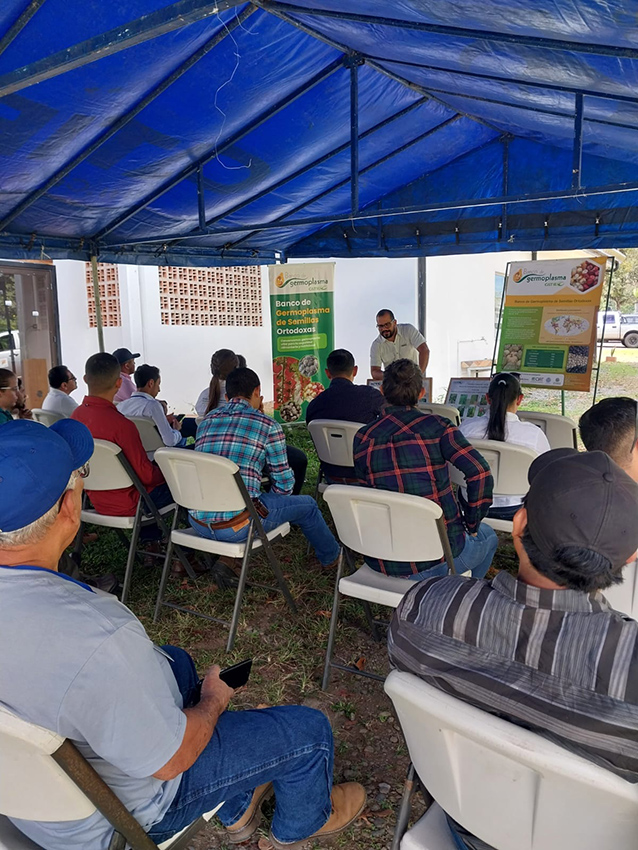
Throughout the course, theoretical and practical sessions were conducted covering various topics, including climate variability and change, biodiversity conservation, financial and economic evaluation of agroforestry systems, as well as methodologies for designing and implementing these systems. These sessions were led by specialists from CATIE, who shared their extensive experience in the field.
The workshop saw the participation of 24 institutional technicians linked to partner institutions of the AGRO-INNOVA project in each CSC country, including Guatemala, Honduras, El Salvador, Costa Rica, and Panama.
Among the represented institutions were the National Institute of Forests of Guatemala (INAB), the Secretariat of Agriculture and Livestock of Honduras (SAG), the Association of Services and Socioeconomic Development of Chiquimula, Honduras (ASEDECHI), the Honduran Coffee Institute (IHCAFE), the Agricultural and Livestock Service of El Salvador (SAG), the National Center for Agricultural and Forestry Technology of El Salvador (CENTA), the Ministry of Agriculture and Livestock of Costa Rica (MAG), the Costa Rican Coffee Institute (ICAFE), and the Ministry of Agricultural Development of Panama (MIDA).
This course was part of the AGRO-INNOVA project, funded by the European Union and co-implemented by CATIE and the Inter-American Institute for Cooperation on Agriculture (IICA).
Undoubtedly, this exchange of experiences and strategic alliances will strengthen actions for climate resilience and food security in the CSC, based on successful agricultural, forestry, and digital technologies, as well as research and successful technology transfer.
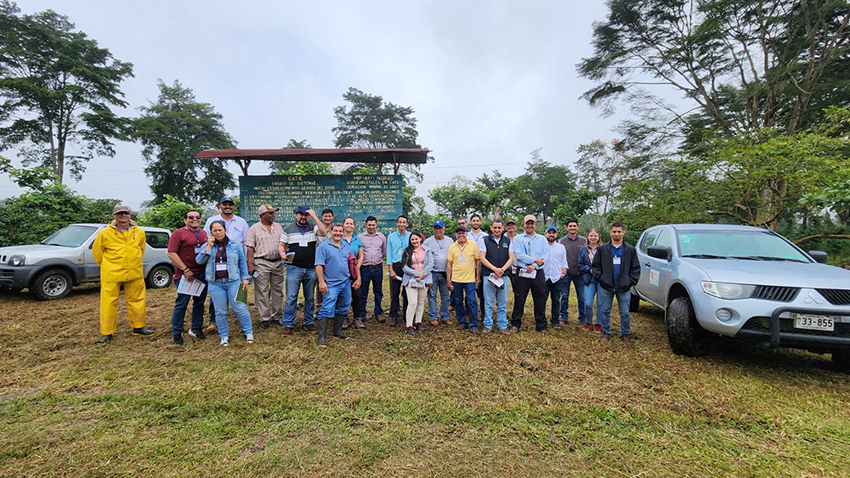
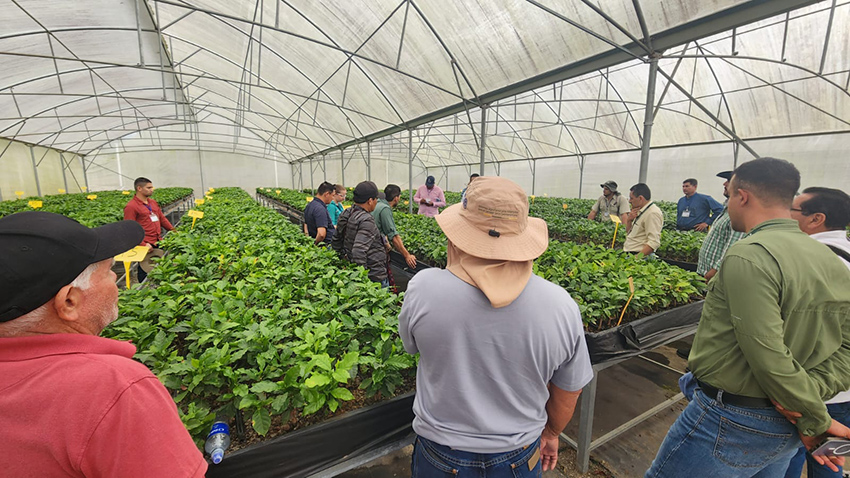
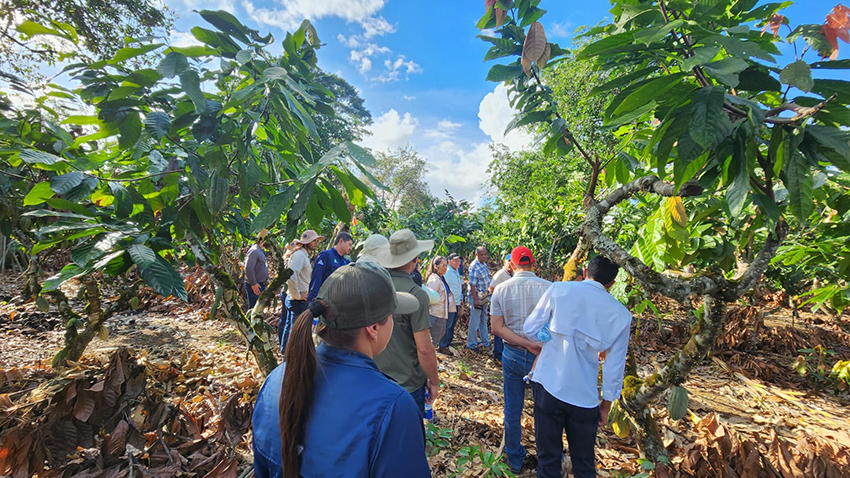
More information:
Mabel Arcos Acosta
Coordinator of the Caprine Module
Agrobiodiversity and Food Security Unit
CATIE
mabel.arcos@catie.ac.cr
Written by:
Karla Salazar Leiva
Communications Officer
Communications and Marketing Office
CATIE
karla.salazar@catie.ac.cr




